How to Take Collagen Protein (Plus Potential Side Effects)
Collagen protein has become super popular, but what do you need to know about collagen and what side effects might it have? This article shares ten helpful tips for adding collagen protein to your diet.
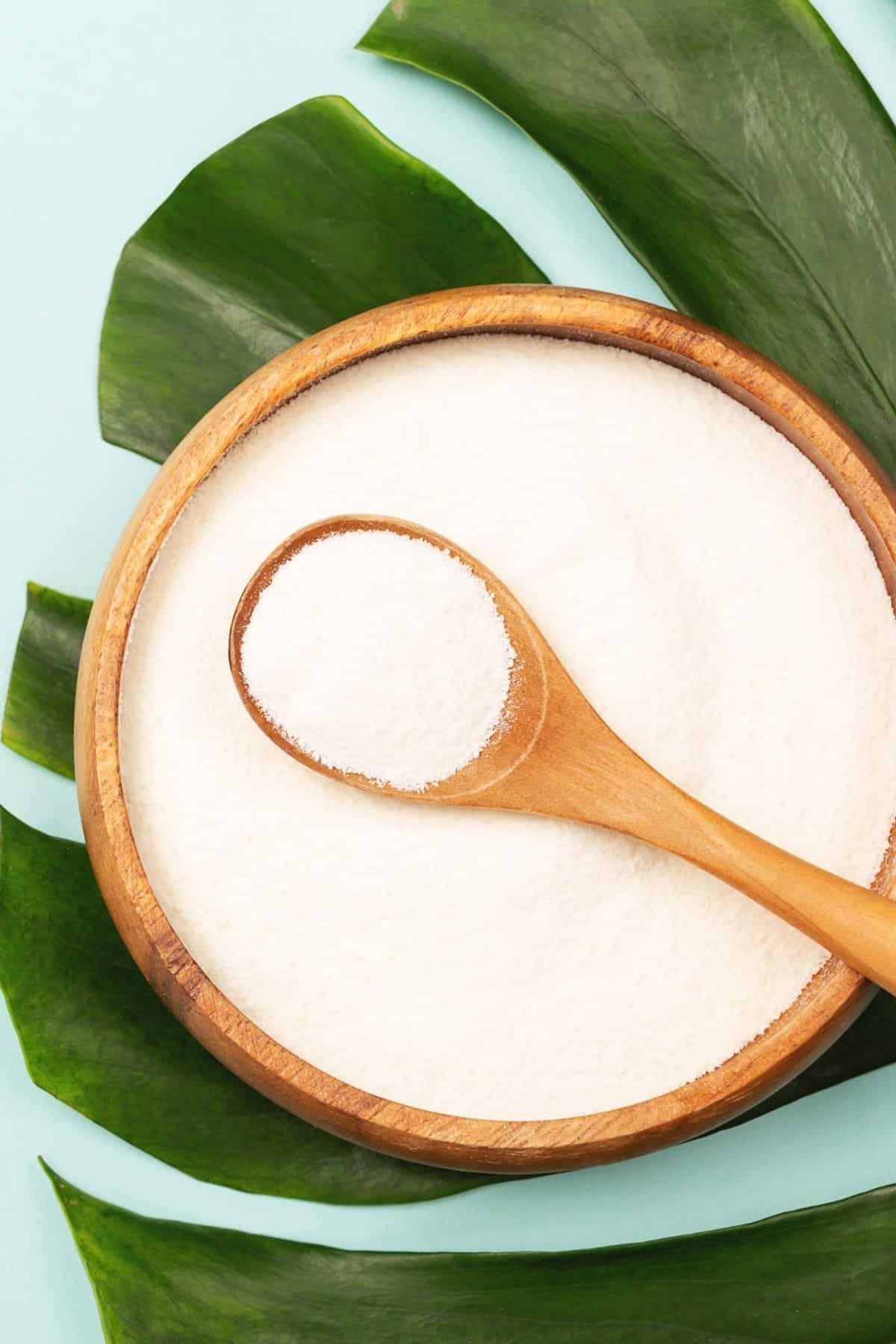
Collagen is the most abundant protein present in the human body. Collagen is responsible for the health of our hair, skin, nails, blood vessels, digestive system, and musculoskeletal system.
Collagen also gives our skin elasticity and helps skin cells renew. It’s what our joints and tendons are made of, making it essential for connecting our bones and enabling us to move safely.
Collagen is comprised of 19 amino acids, called “nonessential” amino acids. Typically, our bodies would produce these amino acids on their own. However, our modern lifestyles, including constant stress and illness and an unvaried diet, can inhibit our production of these amino acids.
For this reason, supplementing with dietary collagen can preserve the health of your bones, skin, gut, and blood vessels.
10 Tips When Using Collagen Protein
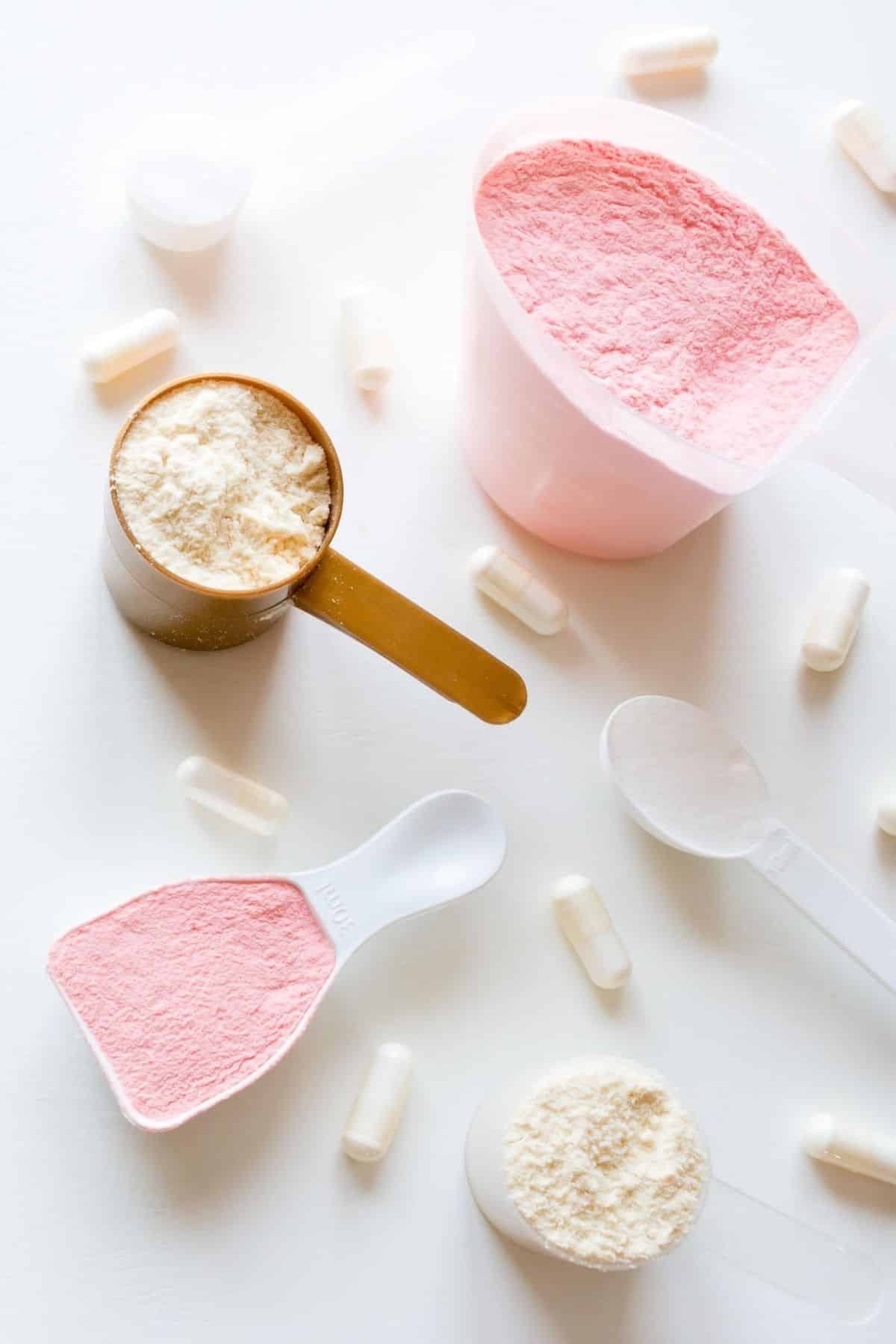
If you’re thinking about adding collagen to your diet or supplement routine, there are some things you need to know. There may also be side effects to using collage protein, including anxiety, headaches, heart palpitations, and other allergy symptoms.
We’ll talk about why you might want to add collagen protein to your diet, who should avoid it, and what happens if you experience side effects.
1. There are different sources and types of collagen
Collagen, an insoluble protein produced in the bodies of animals, is the main component of connective tissue and cartilage. It can be found in high quantities of muscle tissue as well, where it contributes to muscle elasticity.
Commercial collagen protein is generally sourced from cows, although you can also find sources from fish now too.
Collagen is extracted by cooking cartilaginous animal materials like bones, connective tissue, and skin. Therefore, collagen protein is not appropriate for those following a strict vegetarian or vegan diet, and those who are kosher.
There are several different types of collagen you can use.
Collagen Powder
Collagen is very popular right now. You’ll likely see skincare products touting the benefits of topical collagen–however, topical collagen molecules are too large to be absorbed by the skin. Your best bet to get the benefits of collagen is dietary collagen as it can be more easily absorbed by the body.
There are several different types of collagen supplements you can try.
Collagen Peptides & Hydrolyzed Collagen
This form of collagen is what you most often see in the tubs or cans on health food store shelves. Products labeled “peptides” or “hydrolysate” are the same product, made by processing collagen protein through hydrolysis. This form seems to be the most bioavailable form of collagen for our bodies.
Collagen peptides are also odorless, tasteless, and dissolves in hot or cold liquids making them ideal to add to your daily meals. Many people add collagen peptides to their cup of morning coffee. I like it in my Chocolate Cauliflower Oatmeal and Protein Coffee recipes!
Marine Collagen
Marine collagen is a form of hydrolyzed collagen is made of the scales and bones of fish and is rich in Type 1 collagen, which is the most abundant form of collagen in your body. It’s also easily digestible.
Gelatin
You probably know gelatin from eating jello-type desserts as a kid. Gelatin is derived from collagen and so it is a form of collagen. I use gelatin most often in recipes such as my Homemade Sleep Gummies or my Homemade Jello.
Collagen pills
These are simply capsules filled with collagen protein. You may opt for these if you don’t want to add collagen peptides to your drinks or food.
2. Collagen is not a complete protein
Collagen can be a good source of protein for those that are not strict vegetarian, vegan, or kosher. By volume, collagen is almost purely protein, although it is not a complete protein.
If you are looking for an alternative, you might consider beef protein powder which also includes collagen and is a complete source of protein.
One tablespoon of collagen contains about 6-7 grams of protein, which is quickly absorbed into the bloodstream.
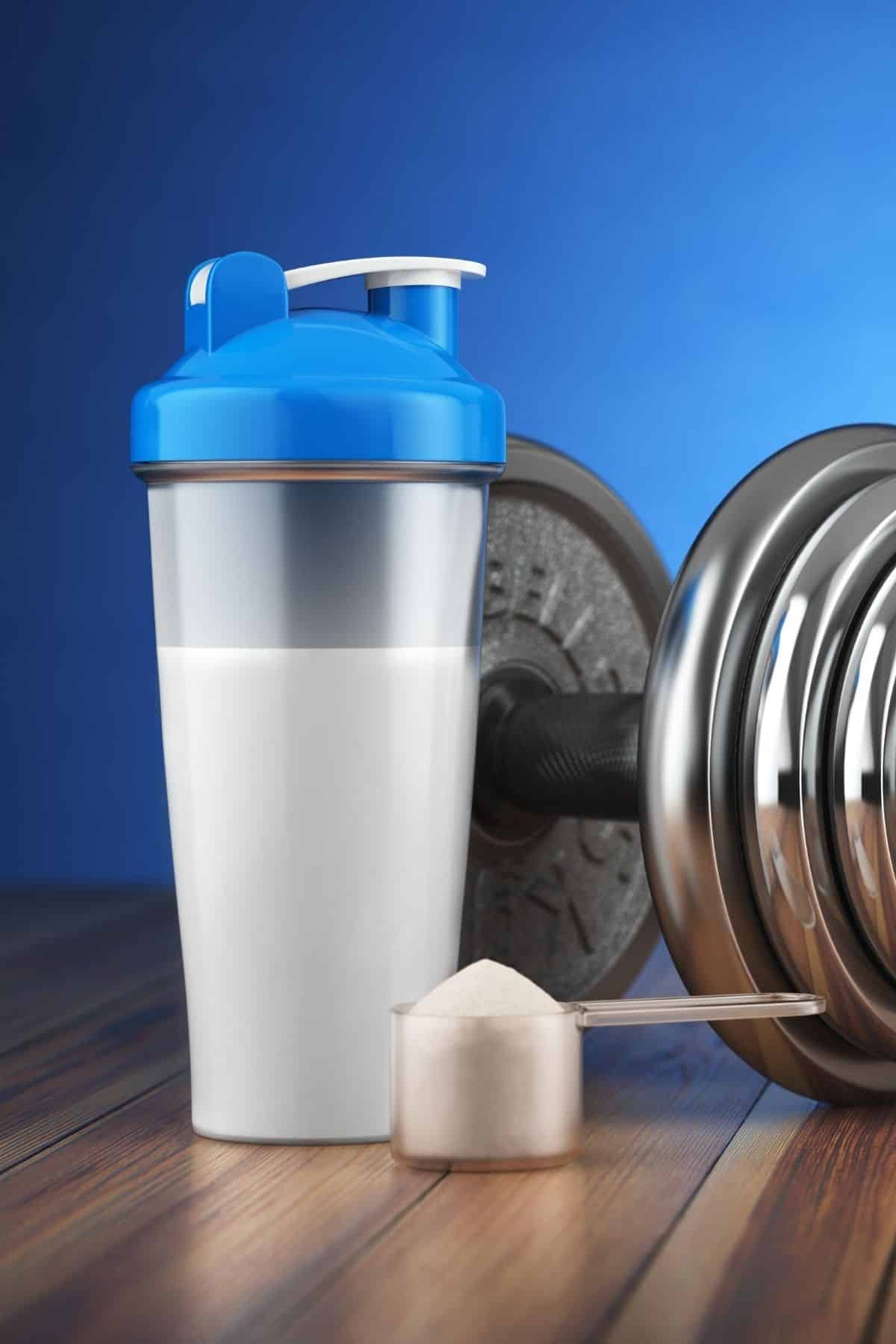
3. Collagen may come from factory farms unless labeled otherwise
Beware of the source of your collagen protein. The Consumer Wellness Center (CWC) tested several brands of collagen protein and found that those products not sourced from organic livestock contained concentrated animal feeding operations (CAFO) byproducts such as endocrine-disrupting chemicals, prescription drugs, and antibiotics.
The results have been questioned and the studies are currently being re-done, but it’s a good idea to look for collagen protein that is pasture-raised (or grass-fed) to avoid CAFO byproducts.
4. Collagen helps nourish skin, hair and nails, but only if ingested
You’ll likely see skincare products touting the benefits of topical collagen. However, topical collagen molecules are too large to be absorbed by the skin. Your best bet to get the benefits of collagen is dietary collagen as it can be more easily absorbed by the body.
Clinical studies have shown that daily collagen consumption significantly improves skin elasticity and moisture.
When ingested, collagen peptides may bring about the production and reorganization of new collagen fibers by stimulating the fibroblasts in the connective tissues of the skin.
The abundance of amino acids in collagen may also improve the strength of the skin, hair and nails. Many topical beauty products contain collagen. However, that won’t do you much good since the collagen molecules in these products are too large to be absorbed.

5. Collagen can supports bone and joint health
Collagen makes up about 90% of our bone mass. Therefore, collagen supplementation can likely be a key factor in promoting bone health. Studies show that supplementing with collagen can also benefit joint health by reducing joint pain and inflammation.
The amino acids glycine and proline found in collagen have anti-inflammatory properties that help soothe inflamed, weak, or achy joints. Your joints are made of collagen, so ensuring you have an adequate amount will help your joints remain healthy.
The rich source of amino acids provided in collagen protein may help to rebuild joint cartilage and may also have an anti-inflammatory effect.
Try this recipe for Bone Broth Rice!
See my other supplements recommendations in these articles about the best vitamins for women over 50, the best vitamins for women over 30, and the best vitamins for teenage girls.
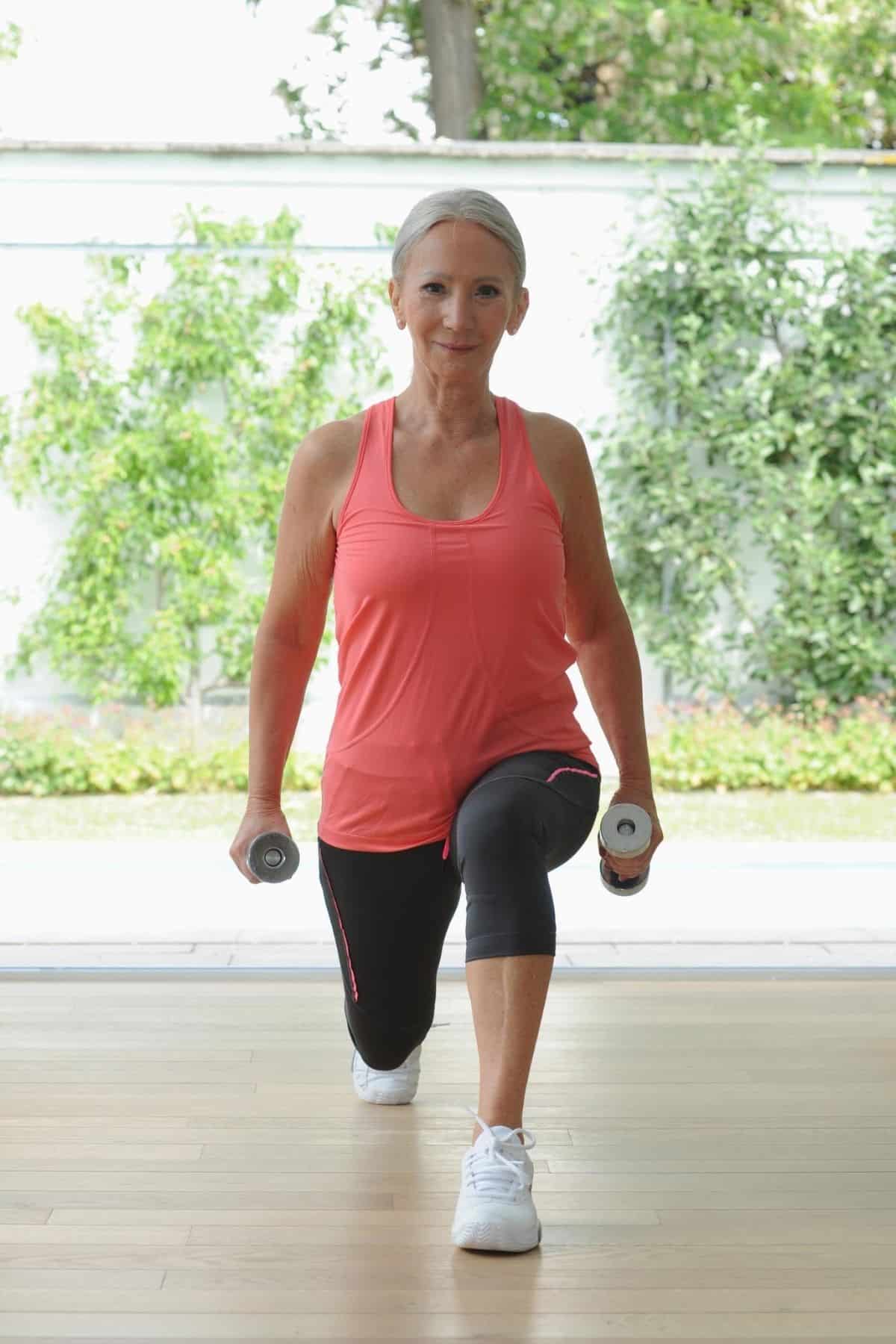
6. Collagen can support digestion and satiety
Collagen is essential for a healthy intestinal lining. The villi in your intestinal lining are made of collagen, and collagen helps repair loose junctions in your gut. Collagen is a must-have protein for a healthy gut (see my full list of the best gut healing foods or the best leaky gut diet).
The amino acids in collagen provide soothing and reparative properties for the digestive tract. Glycine, one of the amino acids found in abundance in collagen protein, has been shown to stimulate stomach acid production thereby improving digestion and nutrient absorption.
Another clinical study showed that those who consumed collagen protein instead of other protein sources like soy and whey at breakfast time were up to 400% more satiated and ate 20% less at lunch time.
7. Collagen might increase histamine levels
People who suffer from a histamine intolerance might have a negative reaction when consuming collagen protein. This is because of how collagen protein is formed from animal products.
It is uncommon to hear about serious side effects from collagen protein. However, quite a few patients that started consuming collagen peptides self-reported increased histamine reactions.
Likely these patients that suffered a histamine response when consuming collagen have a severe form of histamine intolerance called Mast Cell Activation Syndrome.
If you have a known histamine intolerance, consuming collagen protein may not be appropriate for you.
Some collage protein side effects may include:
- anxiety
- headache
- heart palpitations
- skin hives
- and other allergy symptoms
Learn more about how to naturally lower histamine levels.

8. Collagen might deplete tryptophan levels
A little known fact is that collagen has been used in tryptophan-depletion studies to lower serotonin levels. Tryptophan is a precursor to serotonin. This study goes into more detail about how collagen protein is being used to evaluate the relationship between serotonin and behavior.
So what does this mean for you?
Some patients have reported mood disorders as a negative side effect when consuming collagen protein. If you’re prone to mood disorders such as anxiety and depression, then be cautious about consuming collagen protein.

9. Collagen may not work for people who are sensitive to glutamine
The use of collagen is often prescribed for those who have been diagnosed with a digestive disorder called Leaky Gut Syndrome. But people who are sensitive to glutamine need to be cautious when consuming collagen protein. Glutamine is an amino acid that is found in abundance in collagen protein.
While glutamine is beneficial for some, others may be sensitive to it since they may suffer from a more severe case of Leaky Gut Syndrome. The reason is that high amounts of glutamic acid from glutamine may leak into the bloodstream via the compromised intestinal walls that are found in people with Leaky Gut Syndrome.
High levels of glutamic acid may trigger brain fog, migraines, headaches, mood swings, more serious mood disorders, and even seizures if you are prone to them.
10. You can get collagen from real food sources
You can ensure that you have an adequate supply of collagen through collagen supplementation. Keep in mind that collagen can be found in whole foods, so supplementation is not necessary with a perfect, real food diet.
But, since most of us don’t eat perfectly, you may also choose to supplement with collagen in addition to eating a healthy, whole foods diet. Those on a pescatarian diet may also choose to supplement with marine collagen to help prevent deficiencies.
Here are five foods rich in collagen:
Bone broth and gelatin
Bone broth is the stock simmered from animal bones and cartilage.
By simmering these animal parts for 24-48 hours in water and apple cider vinegar (plus any veggies and spices you want), you create a mineral-dense broth high in gelatin, collagen, and nutrients.
Organ meats
It is no secret that organ meats from grass-fed and pasture-raised animals are some of the most nutrient-dense foods on the planet.
One of their health benefits is collagen, which is especially abundant in tendons, bones, and joints. Organ meats are also high in Vitamin A, which boosts collagen production.
Eggs, muscle meats, and fish
Products from grass-fed, pasture-raised, and wild-caught animals and fish are naturally high in collagen.
Berries and leafy greens
These are high in antioxidants and vitamin C, both necessary cofactors for collagen bioavailability. Antioxidants from these foods also provide anti-aging benefits.
Spirulina
This dried algae is a great source of collagen building blocks for vegetarians and vegans. It contains amino acids like glycine to promote collagen production.
But, don’t be fooled by products that are marketed as vegan or vegetarian sources of collagen. Spirulina is an example of a plant-based food source that can promote collagen, but it is not an actual source of collagen.
Collagen Side Effect FAQs
Side effects can vary from having none at all, to feeling moody or depressed, anxious, or jittery. It’s best to start slow when adding collagen to your diet. Try 1/2-1 teaspoon at a time to see how your body reacts to it.
If you have a strong response to collagen, then you may need to consult your healthcare provider. However, the effects should diminish in a couple of hours.
No, there is no such thing as vegan collagen protein since collagen comes from animals. Any plant-based product marketed as “collagen protein” is a marketing ploy and is untrue.
Yes, absolutely! If you have a known allergy to foods including bovine (cow) protein or seafood, then you should avoid collagen products made from cattle or marine sources.
That said, most people do not have allergies to these foods and can tolerate collagen protein just fine.
Conclusions
It can be beneficial to either consume collagen from real food sources from a collagen supplement. Collagen has several important health benefits including support for joints, skin, and gut health, and is an important nutrient for health.
You may experience side effects from taking collagen protein, though. If you do, then you may need to try a smaller dose or discontinue it altogether.
Don’t forget to join my newsletter list to get exclusive clean eating recipes and tips. The newsletter is 100% free with no spam; unsubscribe anytime.
About the Author: Carrie Forrest has a master’s degree in public health with a specialty in nutrition. She is a top wellness and food blogger with over 5 million annual visitors to her site. Carrie has an incredible story of recovery from chronic illness and is passionate about helping other women transform their health. Send Carrie a message through her contact form.
Note: this post is for informational purposes only and is not intended as medical advice. Please consult your healthcare provider for recommendations related to your individual situation.








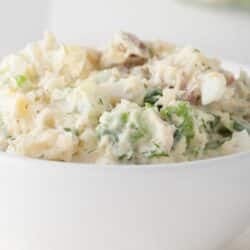




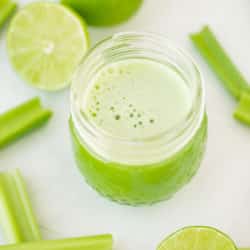





How much is considered a daily supplement?
For most brands, about 2 scoops or between 20-22 grams of protein.
Do you have any collagen powder recommendations
There are lots of great brands, look for organic ones that come from grass-fed cattle.
Can collagen cause a bloated stomach?
Yes, absolutely, especially if you have a sensitivity to the source, whether it’s cow or marine-based.
Hi
A few weeks into taking marine collagen my mood has become low (unusual for me)
I think perhaps tryptophan level I had been affected
Just wondering if I can take a supplement to combat this
As benefits of collagen like improvement in sleep are welcome . Thanks
Hello! After about 2 months of 1-2 scoops of organic collagen protein peptides in my morning coffee, I once again had growing and beautiful fingernails. I was thrilled. No sooner did this occur than it went in reverse, though I changed nothing about my diet or the collagen dosage. My nails are now again peeling and breaking. Why would this help for 2 months then suddenly stop working?
Thank you very much!
Hi Nancy, you would have to consult a healthcare professional who could run some lab tests to see what might be happening. Nail growth and strength can be related to a lot more than just collagen intake. Zinc intake and stress levels are two things I can think off the top of my head that could affect your nails. Again, consulting with a healthcare provider would be recommended if you are concerned.
Has anyone tried taking Zyrtec or another antihistamine to manage side effects from collagen causing sore throat, post nasal drip, and less energy?
I have been taking 11mg of Live Conscious collagen peptides in my morning coffee for just over a week. Now I have “allergy” symptoms (post nasal drip, sore throat, low energy). Ordinarily, I am not a seasonal allergy sufferer. I am a 54 y/o female in the throes of menopause. My hair is thinning—could be from low thyroid—started med for it in May. Just looking for the benefits of collagen—hoping I can manage this reaction. Thanks for this information.
Hi Katie, that would probably help but you have to balance the risks of taking Zyrtec with the potential benefits of collagen. That said, I’ve had to take allergy medicine this year for the first time in many, many years. I think the pollen rates have gone up this year for whatever reason.
Hi Katie! I also experienced allergy related issues after about a week of using collagen supplements (namely a bad sore throat). I was wondering if you ever came across any more info regarding this. I can’t find anything linking collagen supplements to sore throat or allergy like symptoms but know for sure my sore throat started about a week after I started the supplements.
It is most likely a histamine issue related to the collagen.
Are there any foods that would render collagen to be less effective if eaten at the same time? Along the same line, are there any foods that might enhance the effect of collagen if eaten at the same time? Thank you ahead of time for your response.
Great question! I have not heard anything about foods (like fat) that would make collagen more or less effective. If anything, collagen could potentially be more effective in terms of gut healing if consumed on an empty stomach, but that is just anecdotal. There are no studies that I am aware of that have measured this aspect.